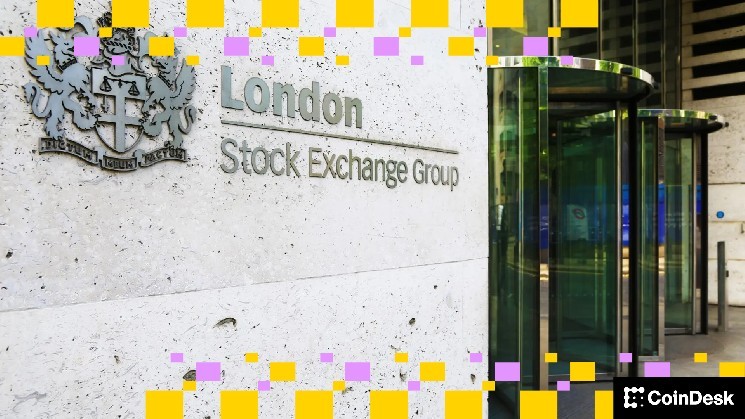KR1 (KR1), the cryptocurrency staking company whose shares started trading on the London Stock Exchange on Tuesday, plans to establish itself as the “blue-chip choice” for the industry, offering a range of services rather than simply investing in tokens such as bitcoin BTC$87,830.49 and ether ETH$2,939.64.
The Isle of Man-based firm is one of a small group of crypto companies listed on the U.K.’s foremost stock exchange. Bitcoin miner Argo Blockchain is set to delist from the LSE next month, and the others are mainly digital-asset treasury companies such as London BTC Co. BTC$87,830.49 and Panther Metals (PALM), whose involvement in industry is based on buying and holding cryptocurrencies.
Co-founders Keld van Schreven and George McDonaugh said KR1’s move from the the small-cap Aquis Exchange reflects a maturing market and a business model they believe offers more long-term resilience than the pure treasury plays. While KR1 does hold crypto assets, the company’s three-pillar approach — staking income, treasury management and venture investments— is key to its durability, they said in an interview.
“Our mission is to be the blue-chip choice for this asset class,” McDonaugh said. “You need a stable base of income to keep the show on the road,” he said, contrasting KR1’s model with companies that rely largely on price swings.
Staking refers to the locking up of crypto assets to fund the operation of a blockchain network in return for rewards.
By joining the LSE, the company hopes to raise its profile and attract more investment. It has long-term ambitions of scaling toward a 500 million pound ($658 million) market capitalization as crypto adoption accelerates. It is currently under 50 million pounds.
The founders highlighted the distinction between proof-of-stake infrastructure and treasury firms. KR1, they argue, is positioned to benefit from the growth of staking and the broader token-based economy, having invested in proof-of-stake networks since 2017.
There has been a proliferation of digital asset treasury companies over the last year, as a string of publicly traded firms sought to replicate the success of Michael Saylor’s Strategy (MSTR). There is a concern that this trend is becoming a bubble, however, with zombie companies latching on to bitcoin or other cryptocurrencies to try and resurrect their share price.
Crypto companies seeking LSE listing face ‘rigorous’ process
The path to listing, however, was far from simple. KR1 spent years working through an “extremely rigorous” process with the Financial Conduct Authority (FCA), van Schreven said.
“We put our first letter of application in two years ago, so the process has been very long,” he told CoinDesk.
“Other companies looking to list will go through the same process as us and they they will need to answer all the very difficult questions about what their motivations are, what classification they’re seeking and so on. There’s many hurdles in that path for them with the FCA.”
Listing on the LSE, they added, opens the door to deeper institutional engagement, new infrastructure partnerships and a broader effort to educate traditional investors on staking.
KR1’s shares trade at 26.5 pence (35 cents), a 1 pence increase (4%) from its last price on Aquis. The price has shown no movement since migrating.

